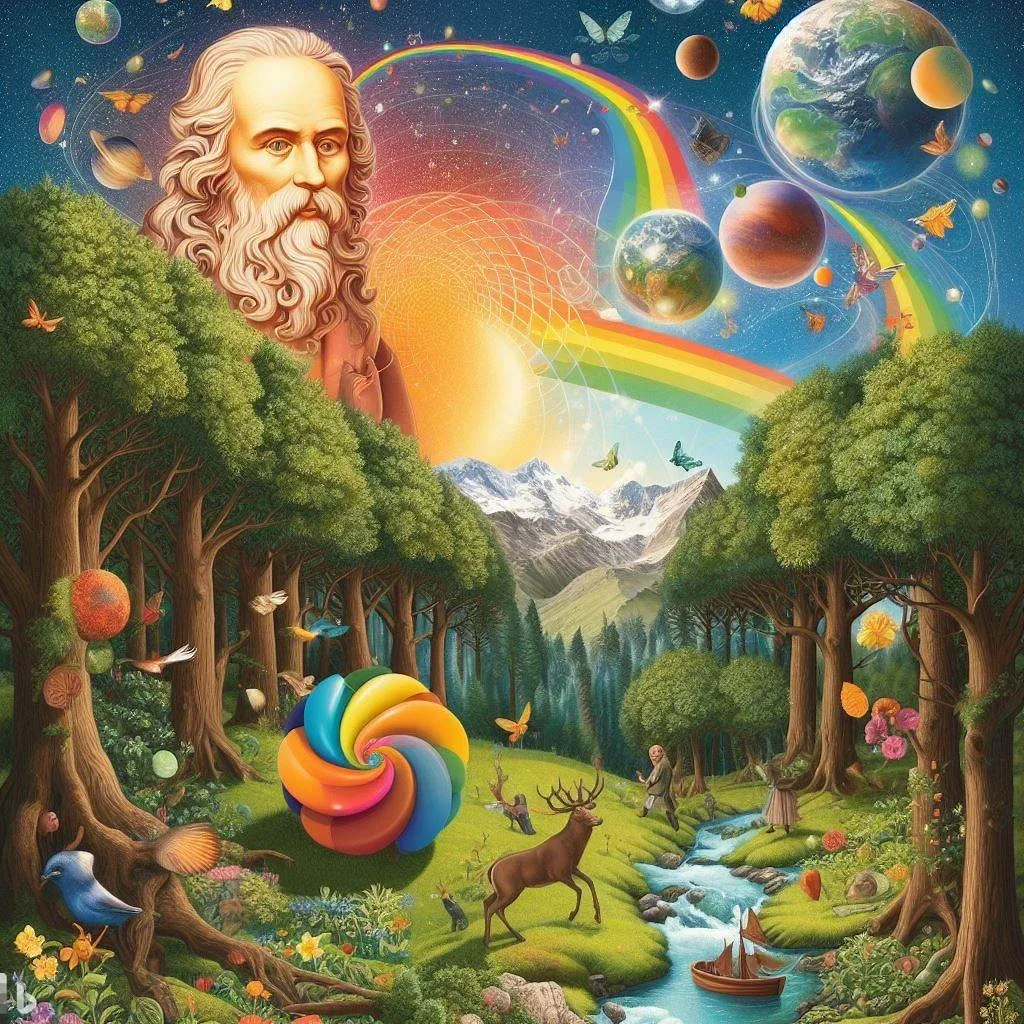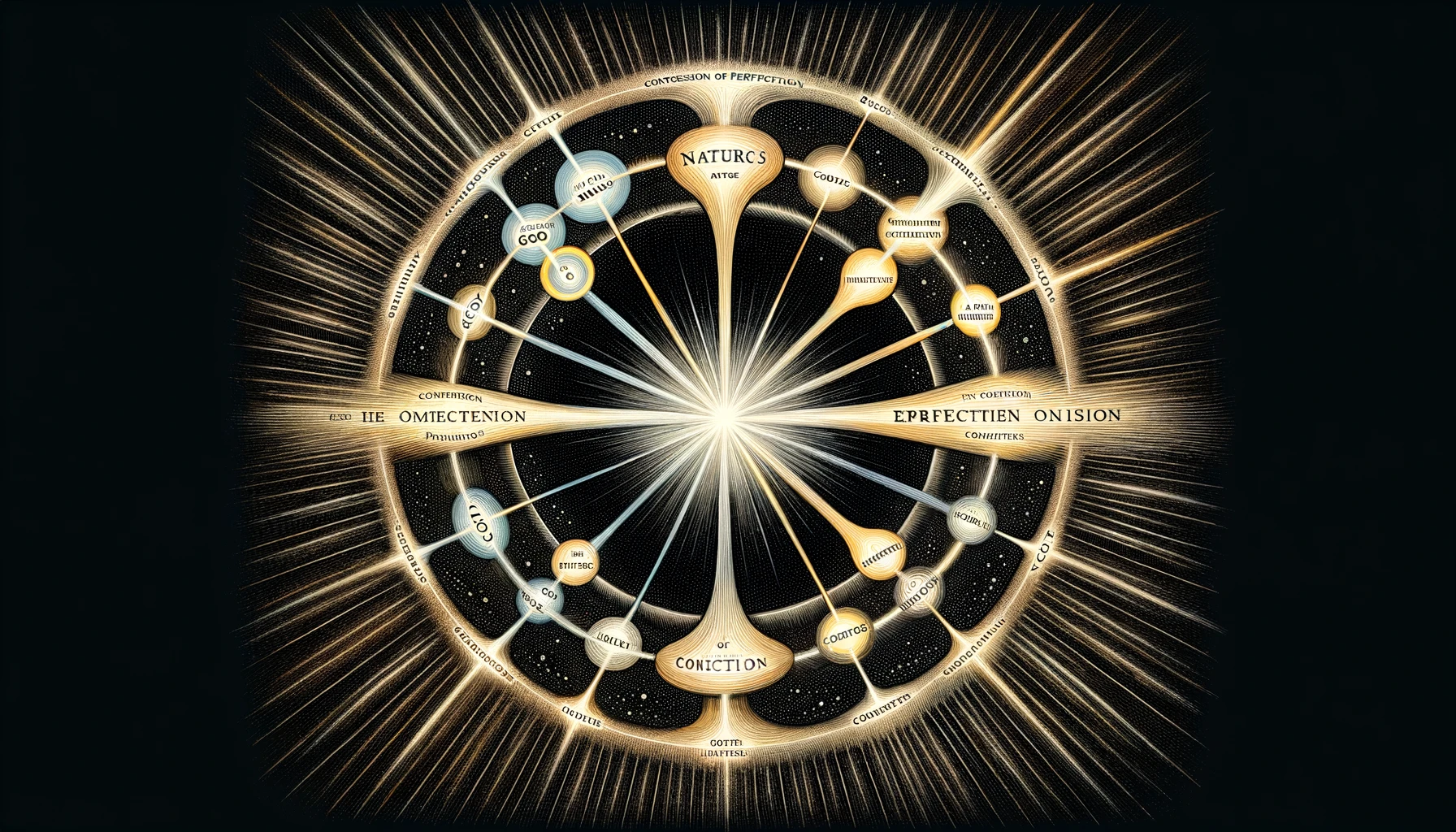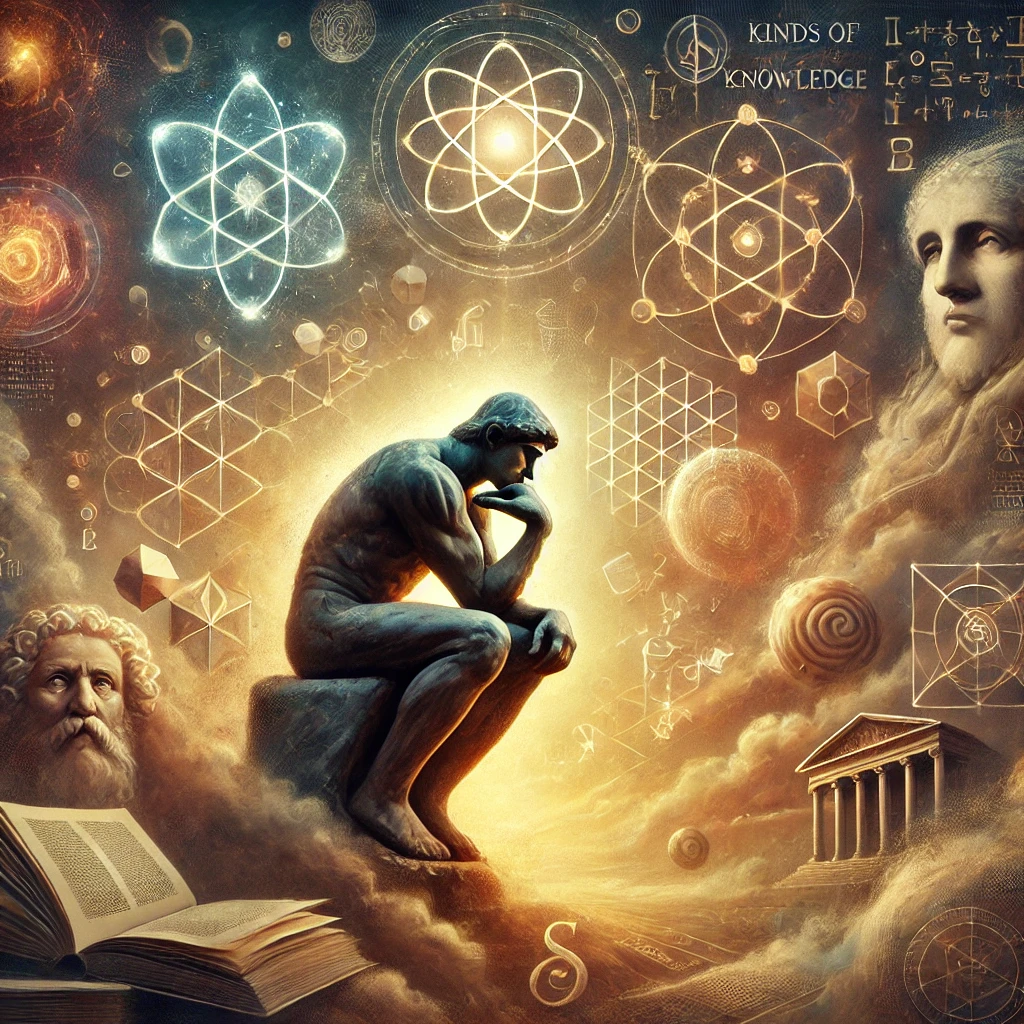
I do not try to convince you of anything, but you need to logically know what God means in this context to continue the rest of the blog. Nothing here is personal; everything is logical..
Spinoza defined all the words from the ground up, the word God, does not have the same meaning in English or the concept you might think of.
Nature
It's equal to Universe, which I explained in Universe page.
Spinoza definition of God
Spinoza's God is fairly famous, but it's not well understood.

Albert
When they asked Albert Einstein if he believed in God, he said:
I believe in Spinoza's God who reveals himself in the orderly harmony of what exists, not in a God who concerns himself with the fates and actions of human beings.
If Spinoza's God was good enough for Einstein, it's gonna be also good enough for me and you!
Spinoza was looking at God, as the nature itself. God to him, is the creator of everything. God is the cause of everything. God is the essence of everything. God is the reason of cause and effect. God is what makes existence possible. God is what sits between cause and effect and makes it possible in the way it should happen.
- What is controlling your heart to beat?
- It's a complex great number of cause and effect that makes it beat.
- What makes cause and effect possible? Nature
It's interesting, when you think about it, it seems like he knew about the Darwinism theory before Darwin, but he was not talking about the evolution of species, he was talking about the evolution of everything, which we are part of it.
God = Nature = Universe = Reality = Everything = Door = You
For Spinoza, God was the nature itself, as one unified field, which is called substance or substance. We are part of the Nature, so we are part of God. But, for Spinoza, you and the door are both substance, because you are part of the nature, and the door is also part of the nature, so you and the door are part of the same thing, which he calls God. So, don't think that you are God; you are part of God just as much as the door is.
2P10 The being of substance does not appertain to the essence of man—in other words, substance does not constitute the actual being of man.
Difference between You, the door, and the God
There is no difference at all, each are substance with different modes. The first 2 are part of the nature, and the last one is the nature itself. I say door because I have seen people who think all of us are God by Spinoza's definition, but it's not the case, we are part of the nature as much as everything else as one united field, which he calls God. I strongly don't think if Spinoza meant that we are God, we are part of nature, as much as everything else.
In many sentences in your day to day life, you can easily change the word "God" with "Nature" and it will still make sense.
- God is the creator of everything
- Nature is the creator of everything
- God is the cause of everything
- Nature is the cause of everything
- God is the essence of everything
- Nature is the essence of everything
- We all come from God
- We all come from Nature
- God is the reason of existence
- Nature is the reason of existence
- God is self caused and no one created it
- Nature is self caused and no one created it
- When we die, we go back to God
- When we die, we go back to Nature
Definition by Spinoza's logic
1P6 By God, I mean a being absolutely infinite—that is, a substance consisting in infinite attributes, of which each expresses eternal and infinite essentiality.
- Being absolutely infinite: Not limited by anything, it's infinite.
- Substance: It's the nature itself, which is the building block of everything.
- Attributes: It's the characteristics of the substance, which is the nature itself.
- Eternal and infinite essentiality: Refers to essence of nature, its self cause, it's essential for it be eternal and infinite. it's infinitely essential to be eternal and infinite.
By God, Spinoza means a absolutely infinite and not limited by anything. A substance being with infinite attributes each expose eternal essentiality (it's infinitely essential to exist eternally). God is the underlying reality of everything, nothing can conceive without God, because everything is part of God.
Attribute and substance do not has the same meaning as you think, if you are curious about it, you can read more about it here: Building blocks of our universe
1P14 Except God, no substance can be or be conceived.
If you change the word "substance" with "Nature" and "conceived" with "imagined", it will make more sense.
Continuing with the definition of God:
1P25 God is the efficient cause not only of the existence of things but also of their essence.
God is the reason of existence and it's the essence of everything. He was looking at all the nature as the same unified field, us and everything else in the nature are part of the same thing, which he calls God. For Spinoza, God was the nature itself. And everything inside the nature is part of the nature, which is part of God.
1P15 Whatever is, is in God, and nothing can be or be conceived without God.
Everything that exist, is part of the nature, so it's part of God. Everything that can be conceived, is part of the nature, so it's part of God. It's impossible to think of something that is not part of the nature, so everything is part of God.
Who are we?
1P25Corollary Individual things are nothing but modifications of the attributes of God, or modes by which the attributes of God are expressed in a fixed and definite manner.
Do you agree that you come from nature? Where have you been 100 years ago? you have been part of the nature somewhere, somehow in some distributed form that you can't imagine (which is called modifications or mode). Where will you be 100 years later? you will be part of the nature, but in a different form, which he calls modifications. But before and after, we all been part of nature, just like the door.
- Modifications or mode: We can think of it as the state of being. The state or mode of mind is idea, the state or mode in physical is substance which is part of the nature and it changes shape and form, but it's still part of the nature.
- Fixed and definite manner: means that you are part of the nature, but in a specific way, which is unique to you, and all the other things in the nature also have their own unique way of being part of the nature.
God in other religions
In other religions, God is a separate entity from the nature. Most of the times, god has a human form, with perfect human characteristics like:
- Being able to talk
- Being able to see
- Being able to hear
- Being able to think
- Being able to judge
- Being able to make decisions
- Being able to be merciful
- Being able to know everything
- Being able to manipulate the nature
- Being able to feel angry, happy, sad and all the other human emotions
Unlike what they say, it doesn't seems that God is a separate entity from nature, but it's one of us, it's the best of us with infinite power. Meanwhile it's somewhere that we can't see it because it's not part of the nature, but it's the creator of the nature.
How would the god of sharks look like for them?
If sharks had a religion, how would their god look like? They have some sort of specific abilities that we don't have. They God of sharks might be the fastest swimmer, with the best sense of smell, and the best hunter, and the best survivor, and the best reproducer, and the best of all the other things that sharks are good at. But our God doesn't have any of these abilities, because it's not a shark, it's a human. It's abstraction of us, but with infinite power.
God cannot be separated of nature
1P2: "Two substances having different attributes have nothing in common with one another."
- Replace the word "substance" with "Nature" and "attributes" with "characteristics" and it will make more sense.
Two natures having different characteristics have nothing in common with each other.
It's over simplified and it lose some of the meaning, but it's easier to understand this way.
Spinoza was holding the idea of a unified reality/field and no separate creator.
For example: because an idea can't be touched, it has nothing in common with the physical world, so there is nothing common between the idea and the physical world, but one conceived through the other, which is mind conceived through the physical world.
It's impossible to think of nature that is not part of the nature. So a God who created the universe, who is in a shape or form that we can't imagine because of it's nature, has nothing to do with the nature, because it's not part of the nature.
1P14 Except God(Nature), no substance can be or be conceived.
Because everything that exist is part of the nature, then nothing outside nature can be conceived. Which makes sense, is your mind able to conceive something that is not part of the nature? I can't. Yes you can imagine star wars, but it's part of the nature, because it's in your mind, which is part of the nature.
Conclusion
Spinoza's God is the nature itself, and everything in the nature is part of the nature, which is part of God. "Deus sive Natura", God or Nature, is the same thing for Spinoza. You and the door are part of the same thing with different modes, which he calls God. Spinoza's god is different from anthropomorphic gods, which are in a human form with super powers.
What's the same with Spinoza's God?
- God is the creator of everything
- God is the cause of everything
- God is the essence of everything
- God is the reason of existence
- God is self caused and no one created it
- When we die, we go back to God
Almost everything else you have in mind about God, is the same with Spinoza's God, but with a different perspective.
What's different with Spinoza's God?
- God is not a separate entity from the nature, it's the nature itself.
- God is not a intelligent agent, it's the cause of everything.
- God doesn't know good and bad, it knows necessity.


